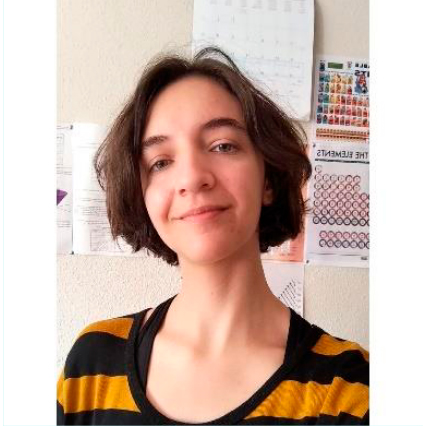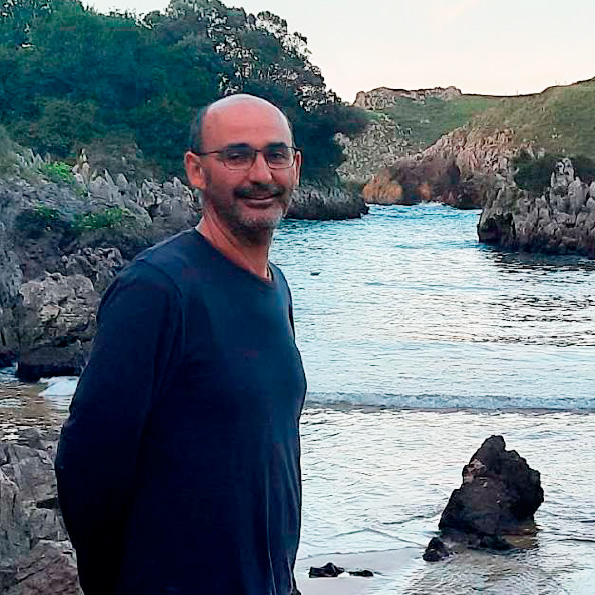Seminario de Julian Gargiulo el martes 19 (Impresión óptica y nanotermometría)
-
El seminario será impartido presencialmente en la sala de conferencias de Serrano 121, el martes 19 de marzo a las 10:30.
Madrid / 15 de marzo de 2024

Últimas noticias
Abstract:
Metallic nanoparticles (NPs) present strong photothermal responses, meaning that they are efficient nanoscale transducers of light into heat. However, temperature is hard to estimate, hard to control and hard to measure in the nanoscale [1]. Here, I will present two tools for the investigation of the photothermal properties of single particles.
First, I will introduce Optical Printing. This technique uses highly focused laser beams to capture individual NPs from colloidal suspensions and fix them into predefined locations with an accuracy higher than 50 nm. This enables the fabrication of patterns of arbitrary design on plane substrates, which facilitates the systematic study of individual NPs [2].
Then, I will introduce Anti Stokes thermometry, a technique that enables direct and non-invasive temperature measurements without labelling or prior calibration [3]. Using this technique, we studied the link between morphology and light-to-heat conversion of bimetallic Au/Pd nanoparticles with two different configurations: core–shell and core-satellite [4]. Finally, I will discuss the ongoing experiments regarding the application of Anti Stokes thermometry to other hybrid plasmonic systems.
[1] Martinez, L. et al. Thermometries for Single Nanoparticles Heated with Light. ACS Sensors. Just Accepted. DOI: 10.1021/acssensors.4c00012 (2024).[2] Violi, I. L., et al. Challenges on optical printing of colloidal nanoparticles. The Journal of Chemical Physics 156, no. 3 (2022).
[3] Barella, M. et al. In situ photothermal response of single gold nanoparticles through hyperspectral imaging anti-stokes thermometry. ACS Nano 15, 2458–2467 (2021).
[4] Gargiulo, J. et al. Impact of bimetallic interface design on heat generation in plasmonic Au/Pd nanostructures studied by single-particle thermometry. Nature Communications. 14, 3813. (202
Short bio:
Julian Gargiulo co-leads the Nanophotonics Group at the Nanosystems Institute, National University of San Martín UNSAM, Argentina. Assistant Investigator at CONICET.
2012: Licenciado in physical sciences – University of Buenos Aires
2017: PhD in physical sciences – University of Buenos Aires. PhD Supervisor Prof. Dr. Fernando Stefani. Giambiagi Prize for the “Best thesis in experimental physics in the period 2016-2017” by the AFA (Argentinian Physics Society).
2018: Marie Skłodowska Curie Fellow at Imperial College London, United Kingdom in the Hybrid Nanosystems Research Group led by Stefan Maier.
2020-2022: DAAD PRIME Fellow and Humboldt Fellow at LMU, Germany in the Chair in Hybrid Nanosystems.
2023: Assistant Investigator at CONICET
2023: Young Investigator Award from the Argentine Academy of Nacional Sciences, in the field of Physics.
Comunicación IO-CSIC
cultura.io@io.cfmac.csic.es
Noticias relacionadas
El próximo 20 de noviembre, conferencia de David Grojo del CNRS titulada «New Dimensions Open to Ultrafast Laser Material Modifications»
Madrid /13 de noviembre de 2024El miércoles 20 de noviembre a las 11:30 tendremos un seminario organizado por el Grupo de Procesado Láser en la sala...
El próximo lunes 25 de noviembre, café científico con María Eva Nieto Piñero
La charla se titula "Viaje a través del cristal" Este mes la charla será a las 11:00h en la Sala de Conferencias de Serrano 121Madrid / 11 de...
El 4 de noviembre charla de nuestro compañero Sergio Barbero en el Ciclo de Conferencias sobre Historia de la Óptica
Madrid / 31 de octubre de 2024El próximo lunes (4 de noviembre) a las 12:30 pm, tendremos la segunda charla virtual del IV Ciclo de Conferencias...




